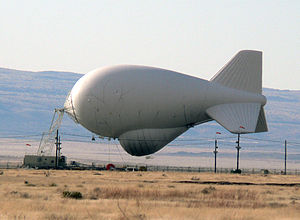Obama Closing Air Defense System on U.S./Mexico Border: Texas & America Vulnerable to Attack from Low Altitude Missiles and Aircraft
 Call
your Congressmen and Senators immediately and demand that the recent
budget cuts do not affect the security of America’s borders. The Federal
Government wastes billions of dollars on things they should not even be
involved in, but securing our country’s borders is one of the jobs that
the federal government is actually supposed to do!
Call
your Congressmen and Senators immediately and demand that the recent
budget cuts do not affect the security of America’s borders. The Federal
Government wastes billions of dollars on things they should not even be
involved in, but securing our country’s borders is one of the jobs that
the federal government is actually supposed to do!Obama has always pushed massive cuts in the military as part of any budget cuts he will accept in fiscal deals. Obama seems to be getting what he wants, and it will leave America’s borders vulnerable to attacks and other infiltrations.
Air Force’s Air Defense Radar Systems along U.S./Mexico Border will SHUTDOWN on March 15th, 2013
On January 17th, 2013, Exelis Systems Corporation sent out an email (see email below) to all of its employees informing them that on March 15th, 2013 all TARS Air Defense Mission Operations will permanently cease. These TARS Air Defense sites were under the control of the United States Air Force. On January 15th, 2013, the Air Force informed Exelis (the defense contractor running the TARS sites) that the TARS sites will be shut down. Exelis tried to then negotiate with the Department of Homeland Security to see if they would take over the vital project, but it seems as though those negotiations have failed. What does this mean?
This means the southern border of the United States of America will be more vulnerable to attack from low flying aircrafts, low altitude missiles, and other infiltrations such as smuggling.
Speaking on the condition of anonymity, one Exelis employee had this to say about the announced closure of the TARS sites:
“Not only will this closure mean hundreds of people will be out of jobs, but it also means our borders will not be safe, especially along the remote U.S. Mexico Border like in Texas. These defense radars detect low flying aircraft infiltrating our borders. Without these defense radars, low flying aircraft will go undetected. It will be open season for any drug/gun/slave smugglers, terrorists flying in with nukes, low altitude missiles, or even a full scale low elevation invasion/attack against America.”According to the Air Force’s website, the Tethered Aerostat Radar System, or TARS, is an aerostat-borne, surveillance program. Using the aerostat as a stationary airborne platform for a surveillance radar, the system is capable of detecting low altitude aircraft at the radar's maximum range by mitigating curvature of the earth and terrain masking limitations. TARS provides a detection and monitoring capability along the United States-Mexico border, the Florida Straits, and a portion of the Caribbean in support of the Department of Defense Counterdrug Program.
The primary agencies using the TARS surveillance data include U.S. Northern Command in support of Customs and Border Protection (Air and Marine Operations Center and Caribbean Air and Marine Operations Center) and U.S. Southern Command in support of Joint Interagency Task Force-South. In addition to its counterdrug mission, TARS surveillance data also supports North American Aerospace Defense Command's air sovereignty mission for the continental United States.
Email Sent to all Exelis Employees January 17th, 2013 Announcing Closure of TARS Air Defense Sites:
Subject: TARS Contract Update
Tuesday, 15 January 2013, we received a government request for a proposal (RfP) to de-scope and close the TARS program by the end of the fiscal year. The government indicated that it does not intend to exercise the final two option years for the TARS contract. In the RfP, the government also indicated its intent that aerostat flight operations will cease on March 15, 2013, and that the remainder of the fiscal year will be used to deflate aerostats, disposition equipment, and prepare sites for permanent closure. We are currently reviewing all the details of the RfP and evaluating the possible impacts on the program and our workforce. We continue to communicate with the government on this matter, and we will have more information in the coming days and weeks.
The TARS program provides a critical capability to the U.S. government and we should remain focused on providing that service in an uninterrupted and robust manner.
The best thing we can do right now is to continue to provide the outstanding TARS support that has become the Exelis hallmark, while allowing the company and the government time to continue discussions on how to best support the customer, the program, and our workforce. We will provide regular updates as we know more. Should you have a specific question, please address them to Tim Green, Program Manager.
Tim Green, PMP
Program Manager
Tethered Aerostat Radar System
Exelis Systems Corporation

No comments:
Post a Comment